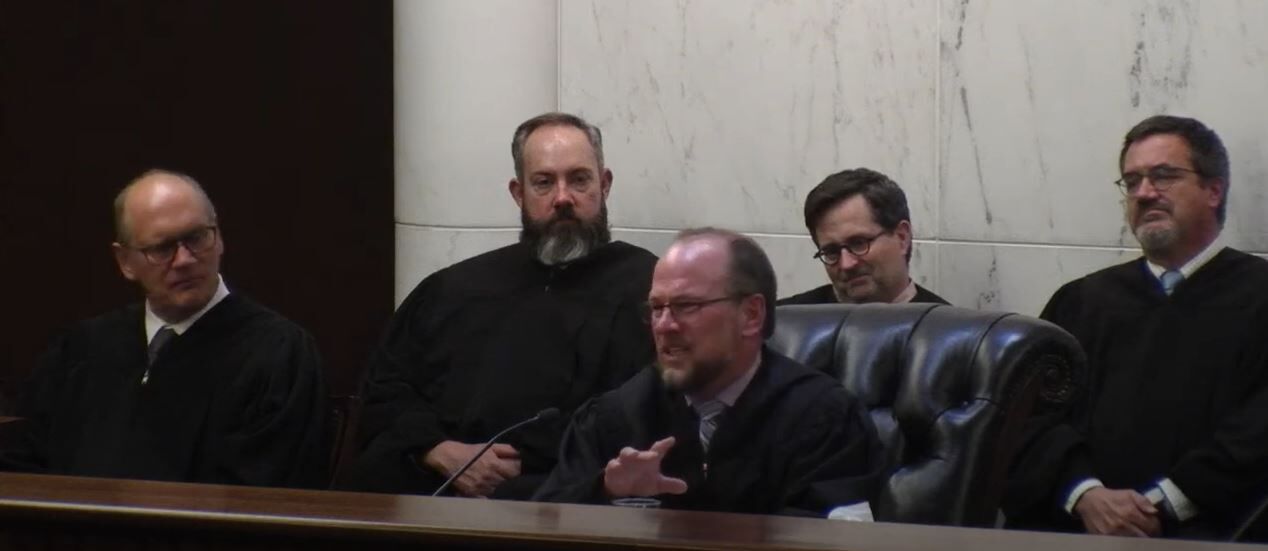Divided appeals court finds man’s 5-year sentence reasonable for now-misdemeanor crime

Colorado’s second-highest court last week upheld the 62-month prison sentence of a man who escaped to Arizona while on parole in 2018, even though the offense would now result in a maximum of 120 days in jail.
By a 2-1 ruling, a three-judge panel of the Court of Appeals found Jonathan Scott Story was not eligible to benefit from a change in state law enacted one year after his guilty plea, which reclassified his crime as a lesser offense. The majority also saw no need to return his case to the trial court for an examination of whether his sentence was too harsh.
However, Judge Timothy J. Schutz indicated he would have given Story a chance to make his case for a resentencing. Schutz believed the combination of the legislature lowering the offense level, Story’s prior criminal history and the nature of the crime to which he pleaded guilty all suggested five years’ imprisonment was excessive.
“I cannot conclude that the subject offense is grave and serious, even considering the classification of Story’s prior offenses at the time he was convicted of them,” he wrote on Nov. 17.
Story was on supervised parole at the time he removed his ankle monitor and fled to Arizona. After his arrest, prosecutors charged him with the crime of escape, which was a class 3 felony as of 2018. He pleaded guilty and a judge sentenced him to 62 months in May 2019.
Ten months later, the governor signed the Prison Population Reduction and Management Act. Among other things, the law created a new offense called “unauthorized absence,” which would have encompassed Story’s crime. The legislature made the offense a class 3 misdemeanor, with a maximum sentence of six months in jail. A further change in 2021 reset the maximum punishment at 120 days’ incarceration going forward.
Although Story did not appeal his conviction or sentence, in May 2021 he submitted a petition to the trial court citing the amendments to the law. He argued the PPRM could apply to him and that there should be a review of his sentence’s proportionality.
But El Paso County District Court Judge Jessica Lyn Curtis denied Story’s petition, finding he was not eligible to benefit from the change in law.
“The Court, although sympathetic to Mr. Story’s current circumstance, disagrees with his analysis,” she wrote. “Mr. Story did not bring a direct appeal of his conviction in this matter. Thus, the conviction is final and he is not currently postured to benefit from amendatory legislation.”
Curtis did not address Story’s request for a proportionality review.
The appellate panel agreed with Curtis’ analysis that the PPRM did not apply to Story. His conviction became final after the 49-day window for appeal passed following the imposition of his sentence, explained Judge Jerry N. Jones.
Addressing the proportionality of Story’s 62-month sentence, Jones noted the Eighth Amendment’s prohibition on cruel and unusual punishment forbids sentences that are “grossly disproportionate” to a person’s crime. In reviewing a sentence’s proportionality, judges weigh the gravity and seriousness of the crime – including the harm to victims or society – against the penalty imposed.
All things considered, including Story’s lengthy criminal record that included trespassing, drug offenses and assault, the majority found the five-year sentence was justified.
“True, the PPRM appears to reflect the legislature’s revised judgment regarding the seriousness of an escape charge in certain circumstances,” Jones wrote for himself and Judge Craig R. Welling. But “Story has displayed ‘a persistent disrespect and disregard for the rule of law and social norms,’ for which his current sixty-two-month prison sentence isn’t grossly disproportionate.”
Schutz, in his dissent, pointed out that Story’s prior crimes did not themselves appear to be “grave and serious.” Further, because Curtis did not address Story’s request, much less hold a hearing, Story never had an opportunity to present evidence about the seriousness of his priors or his now-reclassified escape conviction.
“While the reclassification of this offense is not determinative in assessing whether it is grave and serious, it is a relevant consideration,” Schutz argued.
The case is People v. Story.














